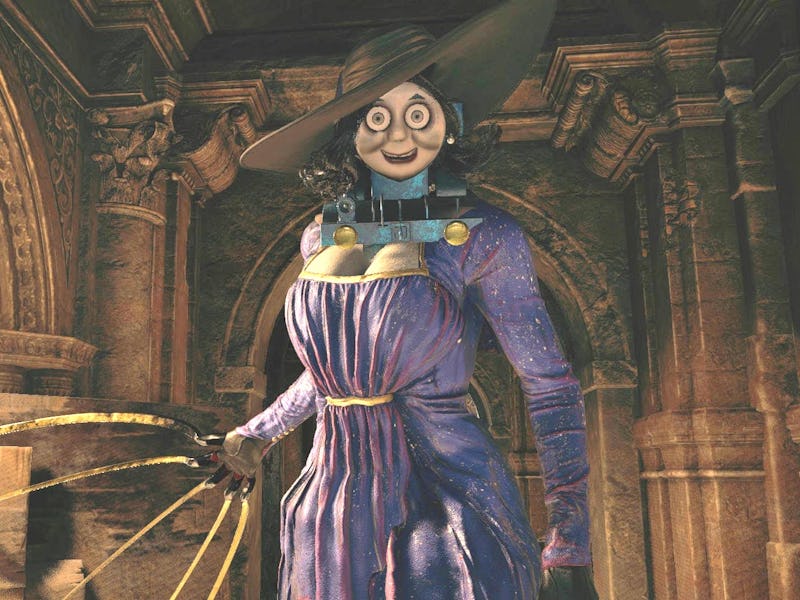Capcom Comparing Mods to Cheating Misrepresents a Vital Part of Gaming
Mods are fair play.

One of the best things about gaming on PC is that players can fundamentally change the experience using mods. Whether you’re creating your own or pulling someone else’s creations from a site like NexusMods, the ability to tweak anything to your liking can turn boring or borderline unplayable games into unforgettable experiences.
But if you ask Capcom, using mods makes you a dirty cheater.
A Capcom R&D video from October 2023 makes the bold claim that using mods is essentially cheating, as GamesRadar+ first reported.
“For the purposes of anti-cheat and anti-piracy, all mods are defined as cheats,” the video says. “Mods that are not officially supported by the game are impossible to distinguish from cheat tools, implementation-wise.”
A Capcom R&D video casts mods in an unfair light.
The video, posted on a channel focused on Capcom’s internal technology, is making a technical argument, not a philosophical one. Capcom isn’t scolding players by equating mods with cheats. In fact, the video calls mods an “inseparable part of PC gaming” and notes that “the majority of mods can have a positive impact on the game.” Capcom did not respond to a request for comment.
Rather, Capcom is making the argument that it can be difficult for anti-cheat tools to tell the difference between mods and cheats; and that the two can have a similar effect on the company’s bottom line.
It may be true that developing anti-cheat measures that don’t target mods is tricky, but the idea that mods themselves are causing any kind of harm is dubious at best.
According to Capcom, mods risk damaging players’ games, which can cause glitches or data loss. Players could then use Capcom’s customer support to ask for help that they’re unable to provide, thus wasting the company’s resources. As Capcom tells it, this could end up eating into the budgets of its games, decreasing their overall quality and delaying their launch.
There’s some truth to the idea that mods can make a game unstable, but it’s hard to follow Capcom’s argument to its conclusion. First of all, installing mods can be a tricky process. At the very minimum, it requires downloading files from a third-party site and inserting them into a game’s folder. It’s hard to imagine that someone would go through the steps of installing a mod, and then assume it was Capcom’s fault that it didn’t work.
In an earlier section of the video, Capcom also admits that it can’t exactly say how much damage is caused by piracy.
“It is not possible to compare the case in which damages are incurred with a case in which no damages were incurred,” the company says.
Resident Evil 8’s anti-piracy tools reportedly made the game run worse.
But at the same time, the company seems oddly sure that mods are causing some sort of unquantifiable damage. Along with the specious idea that mods are costing companies money, Capcom also suggests that they can cast developers in a bad light.
“There are a number of mods that are offensive to public order and morals,” Capcom said. “When these are disseminated, the image of the product is tarnished and branding is affected.”
I’ve personally used a number of mods that are offensive to public order and morals, so the developer isn’t wrong there. But it’s beyond ridiculous to suggest that a mod that puts Resident Evil 2’s Mr. X in a thong or gives Leon Kennedy a tramp stamp could be confused for official Capcom content. Just like the argument that players will blame Capcom for problems caused by mods, it seems to suggest that people are somehow having mods installed in their games without their knowledge.
Ironically, it may be Capcom’s own anti-cheat and anti-piracy measures that tarnish the brand. After the release of Resident Evil 8, Ars Technica reported that cracked (that is, pirated) versions of the game actually ran better than the official release, which was hampered by a stuttering framerate. The group behind this cracked version of the game claimed that Capcom’s anti-tamper systems were causing these bugs.
Whether they’re actually useful or just fun, mods can make even great games better.
What’s worrying about the statement is that it doesn’t really matter if Capcom’s diagnosis is wrong. The company seems to be signaling a move toward anti-cheat measures, which could make modding more difficult, even by accident.
Even if we take Capcom at its word that preventing mods makes its games better with no performance hit, is the tradeoff worth it?
I’d rather live in a world where you can turn Lady Dimitrescu into Thomas the Tank Engine, but mods are much more than that. Mods that add custom difficulty options, remappable controls, colorblind modes, or dyslexia-friendly fonts can give entirely new audiences access to games.
Even if they’re not serving accessibility, mods can be a legitimate creative outlet for their developers. Some mods, like Skywind, which ports the entirety of Morrowind into Skyrim’s engine, grow into long-term projects uniting legions of modders. For some, modding can even be a path to a job, as Bethesda has repeatedly hired modders to work on its games.
It’s not surprising that Capcom would put its own bottom line ahead of the benefits of mods, and it’s not even clear that the company could stop modders if it wanted to. But any tool that makes it harder to tamper with a game’s files could end up depriving players of one of the most exciting things that PC gaming has to offer.
This article was originally published on